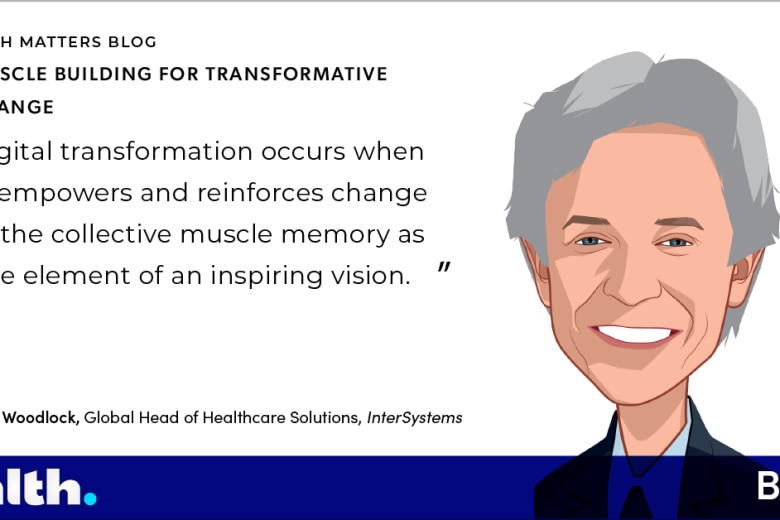When considering how far health IT has come and what lies ahead for the industry, the concept of evolution serves as a compelling and illustrative example.
Back in 1859, Charles Darwin crystalized the concept of evolution that we know today. We all learned about the process of gradual improvement and the creation of new species through the process of genetic mutation and natural selection. We picture something like this:

However, there was one problem. It didn’t happen that way.
We eventually discovered that the majority of evolution was through a process known as “punctuated equilibrium.”
For long periods of time, species remained relatively stagnant, with some changes here and there, but relatively unchanged for millions of years. And then in short bursts, maybe 10,000 years long, an incredible explosion of change occurred, creating lots of new species, mutations and improvements.
After this burst, we would reach a new equilibrium and stay there for another long period of time awaiting our next punctuation.

We see the same occurrence in industries, too. By way of one example, the taxis of 1950 looked like the taxis of 2010. And then all of a sudden, this was replaced with ride-sharing apps. But as I look at a sidewalk of scooters and some self-driving cars, I would guess that the "rent-a-ride" market is in the middle of a punctuation – how it will end, we don’t know.
In these cases, and so many more, we had years and years of equilibrium, little improvements here and there, and then all of a sudden, a massive technology and/or business model change brought us to a new plateau.
How does this apply to health IT? I would argue that we have already had one punctuation, and we are in the middle of a second one now. When my career started, we wrote billing systems. Systems with structured data, typed in on numeric keypads, by dedicated users of the computer. This was the first generation of success in health IT, and it digitized the administrative parts of healthcare.
Then a number of technology breakthroughs happened – standardizing on SQL databases, the storage and viewing of text and images, and perhaps most importantly, the graphical user interface. This allowed non-dedicated users, like physicians, nurses and patients, to use software to help them with their work and lives. This ushered in the next couple of decades where we built and deployed electronic medical records (EMRs). This was the second equilibrium of success in health IT, and it digitized the clinical parts of healthcare.
But like the taxi market, health IT is in the middle of our next punctuation. If you look at the technologies of today: cloud, artificial intelligence, wearables, imaging/text analytics, APIs and ubiquitous UX, we have the raw ingredients for the next massive change.
And if you examine that list, not one of those technologies has reached its full potential yet. They are all showing promise, but most importantly, they are incredibly promising as we explore the various use cases where they can help.

The history of InterSystems has mirrored this trajectory. Our initial database technology enabled the major billing systems of the original health IT market. A couple of decades ago, we launched our Caché product line and enabled the major EMRs in the market today, including Epic, and our own EMR outside the U.S., TrakCare. And last year, in line with this current punctuation, we launched our next platform, InterSystems IRIS for Health, to bring the capabilities for this current punctuation – cloud, AI, API interoperability, analytics – to our customers.
What’s exciting about being in the middle of a punctuation is you don’t know how it will turn out. I, like you, have my predictions and have a collection of my favorite technology buzzwords. But it’s quite clear, based on the enabling technologies of this era, that we are moving closer and closer to the patient, and closer and closer to being helpful to the clinicians and not an administrative sidekick.
I am excited. Health IT has had a long and illustrious history digitizing healthcare. But it’s clear that we are leaving our last equilibrium and about to create an even better future. I can’t wait to see what we build together.
Follow Don Woodlock on Twitter @Don_Woodlock. For more on the evolution of health IT, visit InterSystems.com. Continue the conversation at the InterSystems booth #1559 or schedule a meeting at #HIMSS19.
Originally posted on HIMSSconference.org on January 28, 2019.




































